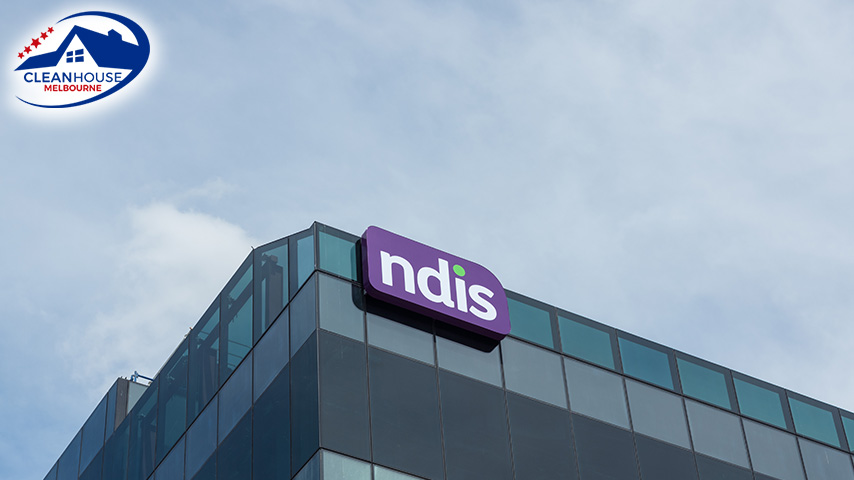According to experts, support coordination can be a tough role. People are entering a new system and encountering many complex issues. If you are looking to start a career in care, or another role inside this much rewarding industry, you may already have thought of a Support Coordinator.
Similarly, if you or your loved one already receives care, you likely might have heard of some people talking about the role or even talked to an NDIS Support Coordinator yourself.
A support coordinator helps you manage support services and assist you to make the best of your NDIS funding. A participant often begins to work with a support coordinator immediately after their plan gets approved.
However, this role varies and many institutions have a bit different idea of what a Support Coordinator is, their duties, and what responsibilities are, as well as what their typical working day is like or what they may be facing as challenges.
This write-up will discuss the above to give our readers more knowledge of the context.

What does NDIS Support Coordinator mean?
A Support Coordinator will give you support to better understand and implement the funded supports in your package and connect you to the community, mainstream as well as other government services.
A Support Coordinator will concentrate on giving you support to develop skills and direct your life, plus connect you to providers. Your Support Coordinator will help you to negotiate your services with providers and the amount that your plan will cost. Support Coordinators will make sure service agreements and service reservations are completed.
They will assist you to develop your ability to consider choice and control, to access your local community, and coordinate supports. They also can help you in planning to get you ready for your plan review. Support coordinators will help you expedite your plan to make sure that you are getting the best out of your funded supports.
So, let us closely check the roles, duties, and responsibilities of NDIS Support Coordination Providers.
What are the Roles of a Support Coordinator?
A reasonable definition of the various roles of a Support Coordinator can be found in the latest version of the NDIS Price Guide. Their roles are mentioned in these guides as:
- Connection: A Support Coordinator serves as a connection center for the participant. It is their job to help participants in building their knowledge and experience including helping them with creating connections inside their community. They will always help to make referrals and assist participants to access other support systems.
- Support design: Participants can find it difficult to acquire a working knowledge of Plan Funding. A Support Coordinator will partner with them to further understand it and how this affects them. They get familiar with the skills, aptitudes, and confidence of participants while helping them to figure out what they want and should expect from support services exactly. Immediately they have a clear understanding of this, they build and create support solutions made to assist participants to achieve their desired results.
- Coach, refine, and reflect: A Support Coordinator works together with participants to give them guidance through barriers and review their progress, and report on the outcomes they’ve achieved so that participants can check their journey with NDIS support and make plans for future achievements.

- Establish support: It is the job of a Support Coordinator to make sure that participants know all the options available to them. They connect participants to NDIS and wider support options, assisting them to figure out and look into appropriate and available options, where possible and practical, the Support Coordinator is also responsible for building a support and action plan and assists the participant to establish it to their taste.
- Crisis resolution: It may also be expected of Support Coordinators to help in crisis resolution, giving participants support to resolve the crisis while they also assist participants to come up with a capable and strong support network.
That is indeed a lot, right!
Are Support Coordinators indeed expected to do all these?
Similar to most support staff of NDIS, Support Coordinators are paid by the hour as and when needed until the end of the participant’s funding. Sadly, the majority of the participant’s funding doesn’t even last enough for them to cover all of the above. And immediately participant’s funding ends, there is no obligation to further support participants unless it would be against the duty of care not to proceed.
What are the Challenges Faced by NDIS Support Coordinators?
The aspect of reward as regards being a Support Coordinator is to meet new people and their families and helping them to implement and coordinate their NDIS package. There is also a reward in having great experiences with different providers and then linking the participant to the provider that perfectly matches their needs.
A huge part of their role is to beat barriers that stand in the way of reaching those goals.
Where something seems too hard, complicated, or too ambitious, they should be the one to say “let us look for a way to make this work.”
Support Coordinators get paid hourly, just like many other NDIS supports. So, immediately the funding of the participant has been exhausted, Support Coordinators are not under any obligation to proceed with support provision (considering that terminating support would not be against a duty of care).
But everyone knows that most Participants don’t get enough funding to enable a Support Coordinator to cover everything listed above.
The best Support Coordinators will create some time at the start of a Plan to talk about how much they can cover considering the Participant’s funding. From there, they can work with the persona and come up with some of the roles above that are of great importance to them.
This enables them to work closely to define expectations about the roles the Support Coordinator will accomplish and which they may give small or no support in.
In the existing climate, Support Coordinators discover themselves always doing more than required for people and often encountering resistance and systemic challenges.
Add the usual crisis management and the continuous insufficient funding of this support to this, you won’t be surprised that some Support Coordinators get exhausted, and lots of them try harder to remain in the comprehensive, optimistic, and collaborative mindset needed for best practice support.
Support Coordination is a hard-to-sustain role, especially when it is being properly done. So what can we do to help our Support Coordinators to keep their highly important role, and getting it done well?
Here are some suggestions we made:
- Give support to plan and practice hard conversations, such as tricky planning meetings or disagreement with stakeholders
- Encourage support coordinators to implement boundaries around certain things, such as the scope of their role and how to contact them
- Celebrate the wins regardless of the size
- Support Coordination role can be isolating so endeavor to give chances for peer support, to debrief, share encounters, and solve systemic barriers together and not alone. If possible, this might be done online in some of the great private Facebook groups that are trending now. You can search for them using words like NDIS Support Coordination.

What Constitutes a Good Support Coordinator?
Everyone has various needs and needs various levels of supports, so, to find a support coordinator who works perfectly well with you is completely a personal decision.
A few important things to watch out for when selecting a support coordinator include:
- Independency: Support coordinators are significant in your journey, so consider choosing an independent provider that only gives support coordination. Specialist support coordination services are the ones that don’t give any other services like therapy, plan management, or support work, so they are only focused on your needs
- If they are innovative: You are special, so what works perfectly for another customer may not be the ideal option for you. A good support coordinator must be innovative, thinking beyond the box when need to.
- If they are reliable: Your support coordinator must be reliable and able to assist you when needed. You can check reviews on Karista, Clickability, or MyCareSpace to find out what their customers think.
- Local experience: No participant knows everything and they must know what they can access near them if they are to get the most out of their funding in the area. That is why a Support Coordinator should have a broad knowledge of the disability and community areas in the neighborhood where they operate, including knowing the quality of services in related fields to make the best recommendations to the participant and better satisfy each of their needs.
Conclusion
The central risk we are trying to reduce here is making sure our Support Coordinators continue to have the strength and time they need to indeed perform their roles day by day. Learning to create and maintain boundaries is one of the best ways to achieve this, especially when it concerns pervasive encounters around the type and amount of support they should be giving to a person with few or no hours left.

FAQs about NDIS Support:
- What challenges do NDIS Support Coordinators face?
They encounter complex client needs, limited funding, and systemic barriers that complicate service delivery. - How do Support Coordinators manage client expectations?
They set realistic goals based on available funding and discuss priorities with participants. - Why is funding a significant challenge for Support Coordinators?
Many clients have limited funding, restricting the level of support coordinators can provide. - How do Support Coordinators help participants navigate the NDIS system?
They assist in understanding NDIS plans, connecting participants to services, and managing their supports. - Are Support Coordinators responsible for crisis management?
Yes, they often help resolve crises and build strong support networks for participants. - What skills are essential for effective support coordination?Communication, problem-solving, and knowledge of local services are crucial for supporting participants effectively.
- How do Support Coordinators assist with NDIS plan reviews?
They help participants prepare and ensure their needs are clearly articulated during reviews. - Can Support Coordinators provide all services required by participants?
They focus on helping participants use their NDIS plan effectively but must work within the scope of funding. - What are the benefits of independent Support Coordinators?
Independent coordinators provide unbiased guidance, ensuring participants receive the best possible services. - How can Support Coordinators balance workload and client needs?
Setting boundaries, prioritising tasks, and seeking peer support are strategies for managing their responsibilities.
.



 Email Us
Email Us Whatsapp
Whatsapp


